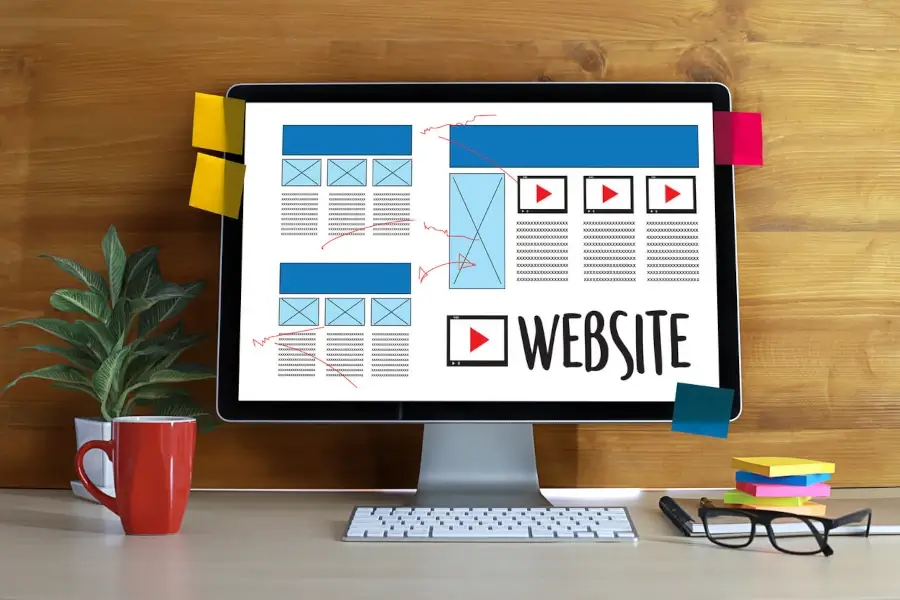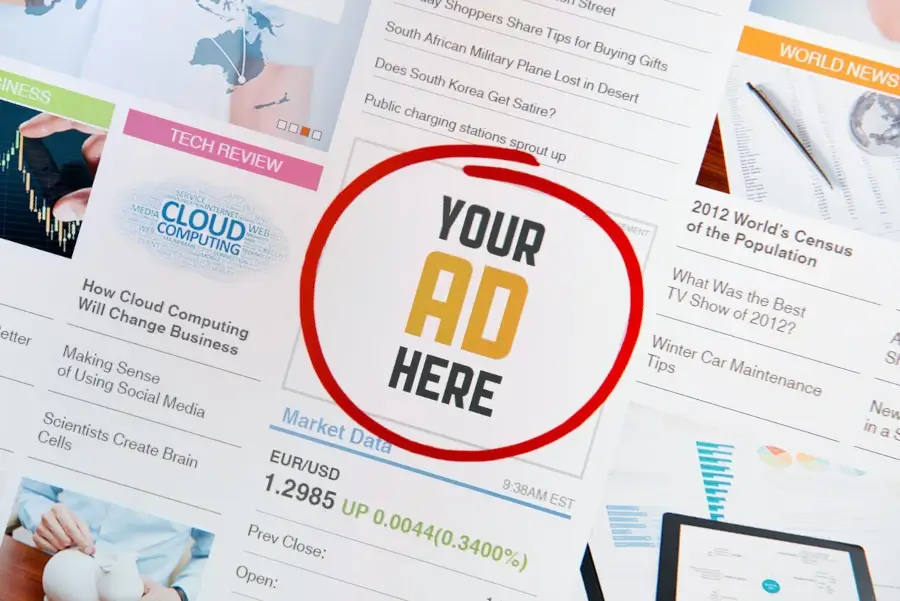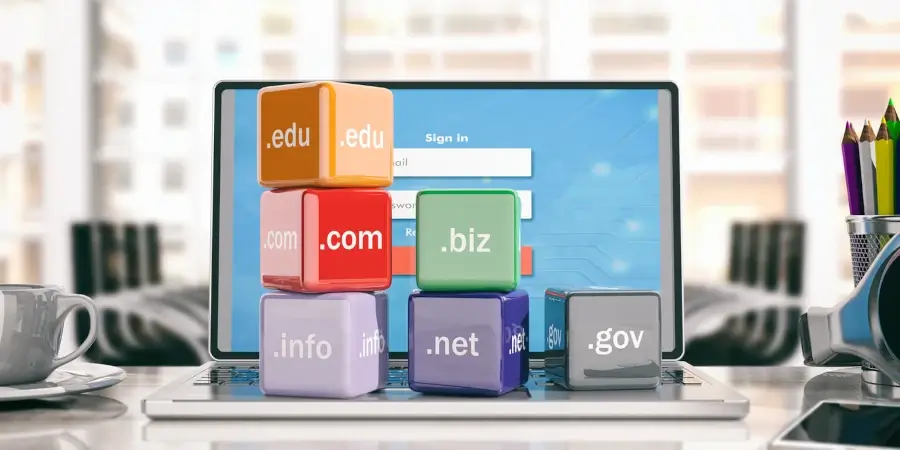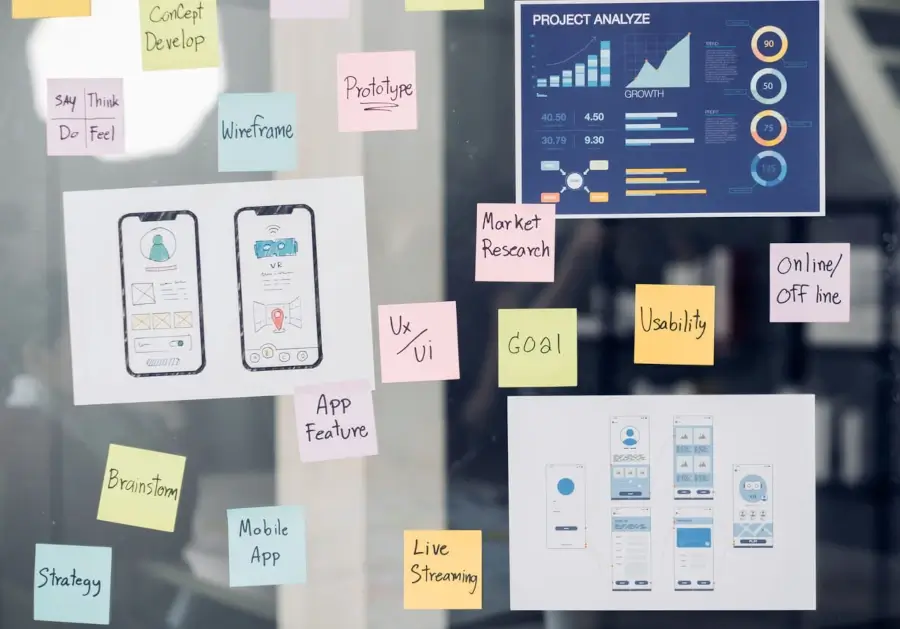By now, many entrepreneurs, especially startups, know that to be more visible, they need to have a small business website. The problem is the idea can be so overwhelming and confusing; they don't know where to begin.
Many things go into creating a professional website, it's not an overnight project. However, if you're looking for an easy guide on how to build your own website, covering the basics, then you are on the right page.
But before we get into what you need to create business websites, let's talk about why you should have them in the first place.
Why Do You Need a Business Website?

Can you sell or promote your business online without having your own website? The answer is yes. However, creating a professional website offers a long list of incentives, making it a must.
1. A Business Website Introduces You to the World
The first step is getting people to know about you. A professional website serves as an introduction of your products and services to new customers, who may then avail themselves of the opportunity to order from your business.
Moreover, through web content that can be accessed by members of the public at large on their home computers, smartphones, and tablets, you will be able to reach out to a broader market.
2. A Website Can Depict Your Company as a Bigger Entity
Since your company website is seen as the face of your organization on the Internet, it should project the same image that you would like people to see - one of an established and reputable business enterprise.
In fact, a well-designed small business website or online store can even give off an overwhelming impression that your business is actually bigger than it actually is.
3. You Can Connect Your Website and Social Media Accounts

You can connect your small business website to online social networking sites such as Facebook, Twitter, LinkedIn, Pinterest, Instagram, Tumblr, etc. This enables you to reach out to existing and potential clients beyond your company website and get valuable feedback from them regarding your products and services.
4. A Business Website Makes It Easier for Customers to Remember Your Name
A business with a website is more likely to be remembered by its target market than one without an online presence. Having the same URL associated with your offline store, and having it forwarded to your Facebook, Twitter, Pinterest, etc., accounts will help customers remember your business more easily.
5. Your Own Website Provides a Face for Your Brand Online
When people surf the Internet, they are constantly looking for businesses that offer products or services that they need. Your company website is what they see first when searching online, depending on their query.
Your website must therefore be attractive and memorable enough to make an impression on your target market - one that will make them return for more information and eventually place an order from you.
6. A Small Business Website Establishes a Professional Online Presence

In the world of the Internet, you can have a social media account or even a blog. However, unless you have a company website and an online presence, then your business doesn't really completely exist.
To understand this more clearly, consider this: in the offline world, for people to buy goods from you, you need to have a space, like a retail store. On the web, your website or online store does the same thing.
7. You Can Position Yourself as an Authority
Would you buy from somebody you consider suspicious? Definitely not. Judging a store is easier offline since you can interact with the products or talk to the staff and even the business owner directly.
You really cannot do the same thing virtually. People will never really know if your product or service works until they try it. For this reason, to become a successful business online, you need to be able to establish trust, confidence, and credibility. PEOPLE SHOULD LEARN TO BELIEVE YOU.
One of the best ways to do that is to create a business website, which you can run alongside an online store. Here, you can build the idea to your target audience that you know what you're doing. If they have any questions, doubts, or concerns about the product or the niche, in general, you can help them.
8. A Business Website Maximizes Traffic and Search Engine Optimization
Having a company website offers the chance for search engine optimization (SEO), which means that by having one, people from all over the world will be able to find you when they search for your business online.
When it comes to getting traffic, nothing beats the power of organic SEO, which is why every website must work to earn its presence on top of search engine results pages (SERPs). For that to happen, there are two things that need to take place: personalized URL and meta description.
Having a personalized URL means that Google will be able to index your website as a result of SEO. On the other hand, a meta description is what shows up on SERPs and, therefore, both work together to convince people to visit your website.
9. A Website Can Enhance Branding

Branding is not just about having a logo and putting it everywhere you can. Having a company website is just one of the branding strategies, and it's among the most effective ones out there.
A professional-looking and intuitively designed company website shows site visitors that your business takes itself seriously and, above all, knows what it's doing because you put so much time and effort into giving yourself an online presence.
10. A Business Website Can Engage Customers
Engagement is simply the interaction with your customers or site visitors, and a positive one brings you a lot closer to meeting your marketing goals, which can include higher conversion rates or better sales.
A company website promotes this engagement in many ways. They can read your blog, leave comments, ask questions, participate in games or contests, and buy products from your online store.
11. You Can Now Run an Online Store
Last but not least, having a company website offers you the chance to have online stores where people can buy your products without the need to go to physical ones.
This is another reason why having a company website is important because it provides you with the ability to grow your business even further and eventually expand into different markets around the world. If that is not something that interests you, that's okay, but it makes it possible. If you are a local business, then it allows people locally to find out more about you.
Best Tips on How to Create Your Company Website

Let's face it, there are a thousand and one ways to build a website. However, unless you know the basics, your efforts are likely to go to waste because you don't have the foundations. Your online site won't be able to meet its objectives, whether it's to sell well in your online store, enhance your web presence, build internal and external links, or boost your conversion.
So, what do you need to do to create the ultimate business website? Consider this step-by-step guide:
1. Define the Purpose of the Business Website
Before you even do your website launch, define what this website will be used for. What would you like people who come across your website to know about you?
Is it simply to sell online, gather contact details of potential customers, or build a relationship with your existing ones? The purpose will help determine the following:
- what website builder or content management system you have to use
- the kind of web designer you should look for
- the different pages that go into your website
- kinds of marketing campaigns you need to do
- what advanced functionality you have to incorporate
- how to build your outbound and internal links
Whatever you want the website to achieve, make sure you write it down as this will be your starting point. Discuss it with your digital marketing agency to make sure that all parties are on the right page.
2. Choose Your Domain Name Correctly

What is a domain name? The simple definition of a domain name is it is the website's full name. Another way to look at it is it will be the address of your business site on the Internet. Some people also call a domain name a URL, which is short for Uniform Resource Locator.
In life, you want your address to be in a good neighborhood, so online, you also need to get the domain name right. But how do you choose it properly? Here are the tips to remember:
- Make it easy to spell and remember: The domain name should be something that is easy to spell especially if you're trying to rank well in Google. It should also be convenient to read to reduce the risks of search engine users typing your domain incorrectly.
- Use keywords in the domain name: Make sure you use relevant keywords when choosing a domain name because that will increase your chances of ranking higher in the SERPs.
- Keep it short and simple: There's a debate whether a domain name should be long or short. There are pros and cons. Shorter names are more ideal since they are definitely easier to remember and spell. However, they are the fastest to be claimed. They may also cost you more. The ideal domain name length is between 6 and 10 characters. If your site name has more than 10 words, you can separate those words with hyphens.
- Don't use hyphens for multi-word domain names: For multi-word domain names, just list the words out. When printing the URL you can uppercase the first letters of each word so that it stands out and makes it memorable.
- Don't add unnecessary hyphens or numbers: Typically, people add hyphens (-) or numbers (0-9) when it comes to naming their websites, usually because they think it looks good or their preferred domain name is unavailable. But adding these may not be ideal since they can make your domain name more difficult to remember and spell.
3. Don't Skimp on Your Web Hosting Plan

When thinking about how to create a website, most people immediately assume that the process begins and ends with choosing a domain name. However, there's another aspect of the website creation process which is very important and shouldn't be overlooked: web hosting.
A web host is a type of Internet hosting service specifically designed to house and deliver content over the World Wide Web.
There are different types of hosting services that cater to different needs and requirements for businesses and individuals, thus creating a vast market in which we find everything from free hosting to dedicated servers:
- Virtual Private Server (VPS): a virtual machine sold as a service by an Internet hosting provider.
- Dedicated Server: a type of web hosting in which the client leases an entire server not shared with anyone else. This is more flexible than shared hosting, as organizations have full control over the server(s), including the choice of the operating system, hardware, etc.
- Colocation: an arrangement wherein clients lease the same space to keep their web servers and other pieces of equipment to run their small business website.
- Shared Hosting: a type of web hosting in which the client shares the capabilities of a single server with many other clients. This is much more cost-effective than dedicated servers, but the individual is usually restricted in what they can do with the server. This is usually where most companies will end up hosting their websites.
Here are the best tips to choose the best web hosting plan:
- Choose a web host with unlimited bandwidth: If you're planning on having your own company website in the future, it's important that you choose a web hosting plan that has an unlimited amount of bandwidth. At some point, you will experience higher website traffic. With unlimited bandwidth, you can have as many visitors as possible without worrying about crashing because of too much load being put on the server. You are also less likely to experience slow site speed.
- Choose a hosting provider with enough disk space: With the amount of content you'll be putting on, it's important that you choose a web hosting plan with enough disk space, plus a lot extra. This will avoid any unnecessary problems in the future when trying to upload files or videos for your site.
- Pick a scalable web hosting plan: When first starting out, you'll probably have a pretty small business website. But as time goes on, you may decide to expand your business and offer more products or services. That's why it's important for small business owners to pick a scalable web hosting plan. If your business grows beyond the size where the current server would be able to handle, your site will still remain operational and will allow you to update it without any downtime.
- Make sure the web host can guarantee uptime: A reliable web hosting company that is worth your money should be able to guarantee 99.9% uptime since anything less than that means your online 'store' is closed.
- Choose a web hosting company with 24/7 customer support: Lastly, make sure you choose a web hosting company that can offer 24/7 customer support because you never know when you'll need to contact them and they should be able to provide answers right away.
What has Greencheck found?
In looking at the sites being monitored by Greencheck, websites average an uptime status of 99.13% .
Skip the Free Domain
The competition among hosting providers these days is tough. Thus, many offer incentives so you will sign up. These can include a free website builder and a free domain for your hosting account. Although they can look attractive, it would be best to avoid these.
While it certainly doesn't hurt to use these companies to build you website, you do not want them to own your domain. Once you spend money marketing your website, you wouldn't want to lose your domain name because something happens to that company. Own your own domain name and point it to those companies.
4. Pick the Right Content Management System (CMS)

After setting up the right web hosting plan, you'll need to choose a content management system (CMS). It is basically an application or software that makes it easier for you to update your website without any technical or coding knowledge.
The best CMS for small businesses include:
WordPress: One of the most popular and widely used content management systems in the industry is WordPress. WordPress users can look forward to a more personalized website design since there are so many options and customization tools available for this CMS, which you can use without knowing any programming languages whatsoever. You can also create pages with plugins that can work as SEO tools. WordPress installation is also fast and easy.
Joomla: For owners of small businesses who don't really want to know how to code, another good choice is Joomla, which works well for small business websites. Like a WordPress site, this CMS is also somewhat customizable and flexible since there are plenty of extensions, plugins, widgets, and modules that you can download from third-party sources, which you can use to make your site more unique. However, it's a bit limited compared to WordPress.
Drupal: Drupal is another website builder that's more technical and complex compared to WordPress and Joomla, but there are a ton of modules or plugins available for this CMS as well. This can be a great pick for those who have the budget since it's not only customizable but also scalable depending on your needs.
Magento: If you're looking for a more user-friendly website builder with built-in e-commerce features, Magento is the perfect pick. Not only does this content management system have a great shopping cart and payment tools, but it also provides SEO tools, as well as marketing tools, which can come in handy for small business websites.
Webs: Lastly, if you want a really simple solution, you can always choose Webs, which comes with a drag-and-drop editor that is very easy to use. This website builder is also free, but it's not really recommended for any serious business website since the options are more limited compared to WordPress or Joomla.
The best CMS is one that you'll know how to use, so you won't have any problems using it in the future when trying to update your website. Being familiar with just one of them would also let you concentrate on other important things, such as creating a website design, picking a hosting plan, and doing more research on your target audience.
5. Think of User Experience Design

Once you get your CMS and web hosting plan ready, the next thing you should do is focus on user experience design (UX). UX designers focus on three things: what customers say they want, what they actually need (which is not always what they say), and what we can make for them. The key objective of UX design is to meet customers' needs and expectations for your website by improving its ease of use, usefulness, and positive emotional impact.
What are the best tips for UX design?
- Every page must have a clear purpose: Keep in mind that every web page should serve a purpose and provide something to the users. This may be helpful information, product details, or even a contact form they can fill out or use when they need to reach out to the business.
- Make your content readable: If you're writing an article about a particular product, break it down into several paragraphs instead of having only one very long paragraph since this can be really hard for your users to read through.
- Avoid any distractions: You also need to avoid including too many external or internal links or text boxes that are unrelated to your web design. This is because you don't want your users to get distracted when they're trying to read an article. This is why it's highly important to keep your web pages simple and clean at all times.
- Choose a responsive theme: Lastly, you should also choose a responsive theme that will work well on all browsers. Keep in mind that not everyone has the latest laptop or smartphone to view your site.
- Get rid of Flash: Flash is no longer needed since most browsers no longer support this plugin. It's also very unsafe due to a large number of vulnerabilities, so you should avoid it at all costs. If you're not sure if your site is still running Flash, Greencheck.ai can check it for you for free.
6. Design a Mobile Site

Since a lot of people are using their mobile devices to browse online, you should definitely think about how your website will appear on smaller screens. But how do you design a mobile-friendly page? Get these tips:
- Select a mobile-friendly theme: You should first pick a theme or template that looks good on mobile devices. However, you should also make sure that the responsiveness is working well since Google uses this to determine if your site is really optimized for mobile devices.
- Simplify content: Even though it's fine to include lots of images and videos on your website, make sure they are sized correctly. Make sure the content of the page is all focused on one keyword (and sub keywords). The length can be as long as it takes to cover that topic, but none other. If the keyword needs to change, start on another page.
- Test your site: You should also test your website yourself by viewing it using different mobile browsers and screen resolutions. This way, you can see how everything looks on various devices. If something is broken, you can fix it right away before your users run into website errors. And you need to continue testing all the time. Greencheck.ai provides ongoing monitoring and testing of your site.
- Use the bite, snack, and meal approach: You can also choose to split up your content into small articles under bite-sized, snack-sized, and meal-sized categories.
7. Create Valuable Content
Since Google is always updating its algorithms and rules, it's become tougher for business owners to get organic search engine traffic simply by creating new web pages. That's why you need to focus on content marketing instead.
There are at least five ways on how to create valuable content:
- Research keywords: Conduct extensive keyword research to find out what words or phrases are best for your niche.
- Make the most of your articles: To make the most of your articles, you can share them on your social media profiles, link your old articles to your new ones, and get links from external sites that point to yours. Greencheck.ai has a monitor for external backlinks so you can see when other sites link to yours.
- Diversify your content: Content marketing isn't all about writing articles. For instance, you can create videos, podcasts, infographics, PDFs, case studies, and white papers to promote your company's brand even more. You should also try to diversify your content for each of the aforementioned categories, so it won't keep looking like you're pushing sales all the time.
- Be consistent: If you want to keep building your company's brand, you should be consistent with the frequency of your posts. You don't have to update your website every single day, but you can post at least once or twice per week depending on what works best for your niche. Some local sites may only need a post once or twice a month.
- Research competitors: To get more content ideas, it's a good idea to check out your competitors and see what they're posting about.
8. Optimize the Pages

Search engine optimization (SEO) is a process that involves ranking higher in search results so website owners can get more organic search traffic. Although it is different from paid or Google ads, it complements the latter. Google ads can drive traffic and increase conversion in the short term or until you start generating more organic results.
When it comes to SEO, there's a long list of must-dos that we might not be able to cover entirely here. However, here are the most essential tips to keep in mind:
- Optimize your meta tags: You can optimize these by using the right page title and meta description.
- Optimize images: Images don't really affect your ranking directly, but they can help drive traffic, which may then improve your position in the SERPs. To optimize these, make sure that they have proper titles, descriptions, and file names because Google uses this information when it crawls your site. You can even optimize images by using a plugin for your WordPress site. Using the new image formats (like .webp) will help to reduce file size and speed up page load. For most images you should try to get the size under 50K or less.
- Create an XML sitemap: This is basically a file that contains a list of all the pages on your website. This is helpful for Google as it serves as a guide when they crawl your site and can even help with indexing issues due to duplicate content. Make sure you submit it to Google in their webmaster tools.
- Make your site mobile-friendly: > Google started rolling out the mobile-friendly update, which will prioritize sites that are more responsive on smartphones when indexing. For this reason, your mobile performance directly affects your search engine rankings.
- Test your site speed: Slow-loading websites are not only bad for conversions but also impact SEO because Google is looking into this as well. The ideal site speed is 3 seconds or less.
- Build quality backlinks: If you want to boost your website's authority, make sure that all of the links pointing to your site are relevant and useful.
- Find your website's SEO sweet spot: Test different types of on-page optimization tactics including anchor text, image titles and descriptions, page speed, and plugin usage. This way, you'll be able to determine which one can boost your site's SEO the most.
- Optimize for local searches: This is especially true for companies who want to appear in search results related to their location. They can attract more local clients and improve conversions as well.
- Fix code errors: Search engines don't like it when they see errors in your code because this can impact their crawling and indexing.
9. Track Your Website Performance
Many website owners and even web developers and content marketers think they're doing a good job until they see dismal results. And most of the time, it's because they don't have a good gauge of their website's current standing.
You might be doing all of these right now but if you're not able to track your website performance, then you won't really know whether or not your SEO efforts are working out. Luckily, there are several ways to do this.
For example, you can use Greencheck.ai. This website performs a comprehensive site audit, assessing the following (among others):
- Keyword relevancy and use
- Quantity and quality of external and internal links
- Code errors
- Redirects
- Readability of the text
- Website speed
- Mobile optimization
- Domain monitoring
- Duplicate content
The website then generates a report, which you can then use to improve your site and fix errors, so you have a bigger chance of creating the best website for your small business.
It's normal to feel impatient when trying to build your site, but you need to find some balance. Rushing things will make you prone to errors, which can be costly or even impossible to correct. Being too slow, however, could mean competitors, including new ones, beating you. Use this guide to get you on the right track now.
